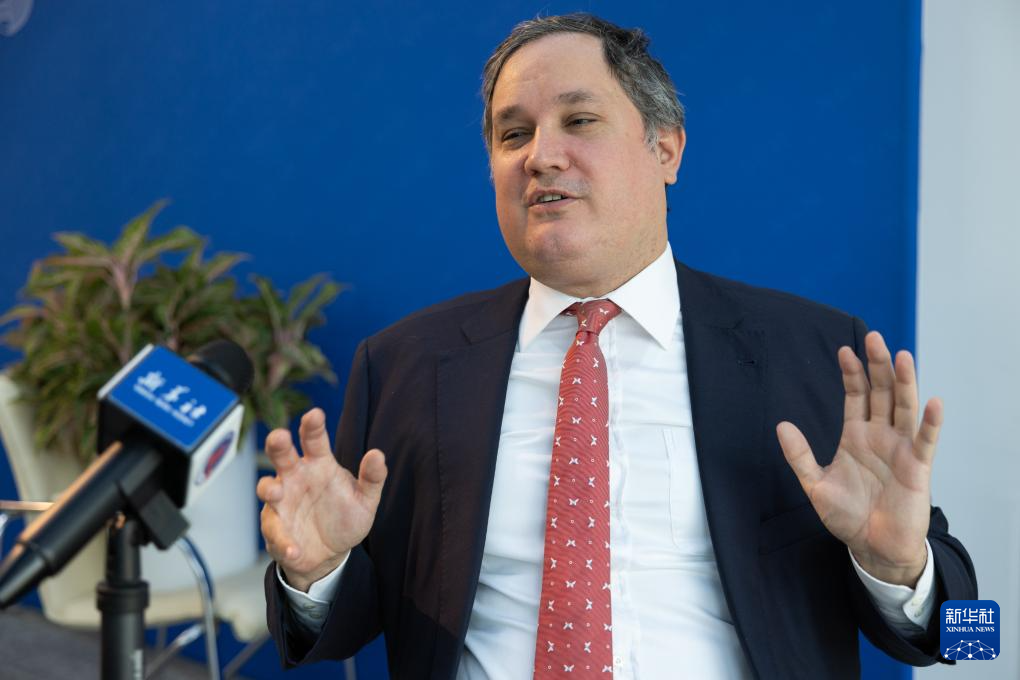Hungarian Minister of Economy, Najib Marton, recently stated in an interview with Xinhua News Agency that Hungary and China have always respected and treated each other equally, maintained good traditional friendship, political mutual trust, and fruitful cooperation in economic, trade, and cultural fields. Hungary is willing to actively promote the continuous development of the comprehensive strategic partnership between the two countries.
 On April 18th, in Budapest, Hungary, Hungarian Minister of Economy Najib Marton gave an interview to Xinhua News Agency reporters. Xinhua News Agency (Photo by Fergie Otilo)
On April 18th, in Budapest, Hungary, Hungarian Minister of Economy Najib Marton gave an interview to Xinhua News Agency reporters. Xinhua News Agency (Photo by Fergie Otilo)
Naji said that in recent years, bilateral trade between Hungary and China has significantly increased, and the cooperation between the two countries in the financial field has also made significant progress. Bank of China has a 21 year history in Hungary and has Budapest as its headquarters in Central and Eastern Europe. Several Chinese financial institutions have also established or are about to establish branches or representative offices in Hungary.
Hungary is the first European country to sign an intergovernmental cooperation document with China to jointly build the “the Belt and Road”. In recent years, the joint construction of the “the Belt and Road” initiative and Hungary’s “opening to the east” strategy have been more closely linked, and the practical cooperation in trade, investment, finance and other fields between Hungary and China has been continuously improved and upgraded.
Najib said that the joint construction of the “the Belt and Road” initiative is of global significance and has injected vitality into participating countries to strengthen economic and trade exchanges and cooperation. He said that Hungary is an active participant in the “the Belt and Road” initiative. The landmark project of the Hungary Serbia Railway under the framework of this initiative will not only benefit Hungary and Serbia, but also promote the economic development of the whole region.
Najib said that there is enormous potential for cooperation between the two countries in the fields of new energy, communication, and artificial intelligence. He said that a large number of cooperation projects, such as the BYD Segde factory and the Ningde Times Debrecen factory, are progressing smoothly, creating more employment opportunities for the local area and helping Hungary absorb more new technologies, promoting the continuous development of industries and regional economies.
He said that Hungary is very interested in the popularization and promotion of electric vehicles in Europe. Hungary will assume the rotating presidency of the European Union in the second half of this year, and we look forward to further promoting this process, which is in the interest of Hungary and the entire Europe.
When it comes to the challenges facing the current world economic development, Nagy said that protectionism is a dead end, and Hungary opposes “de risk” and “decoupling”. He said that China adheres to a high-level policy of opening up to the outside world and calls for joint cooperation to address challenges, which is crucial for global economic development.
